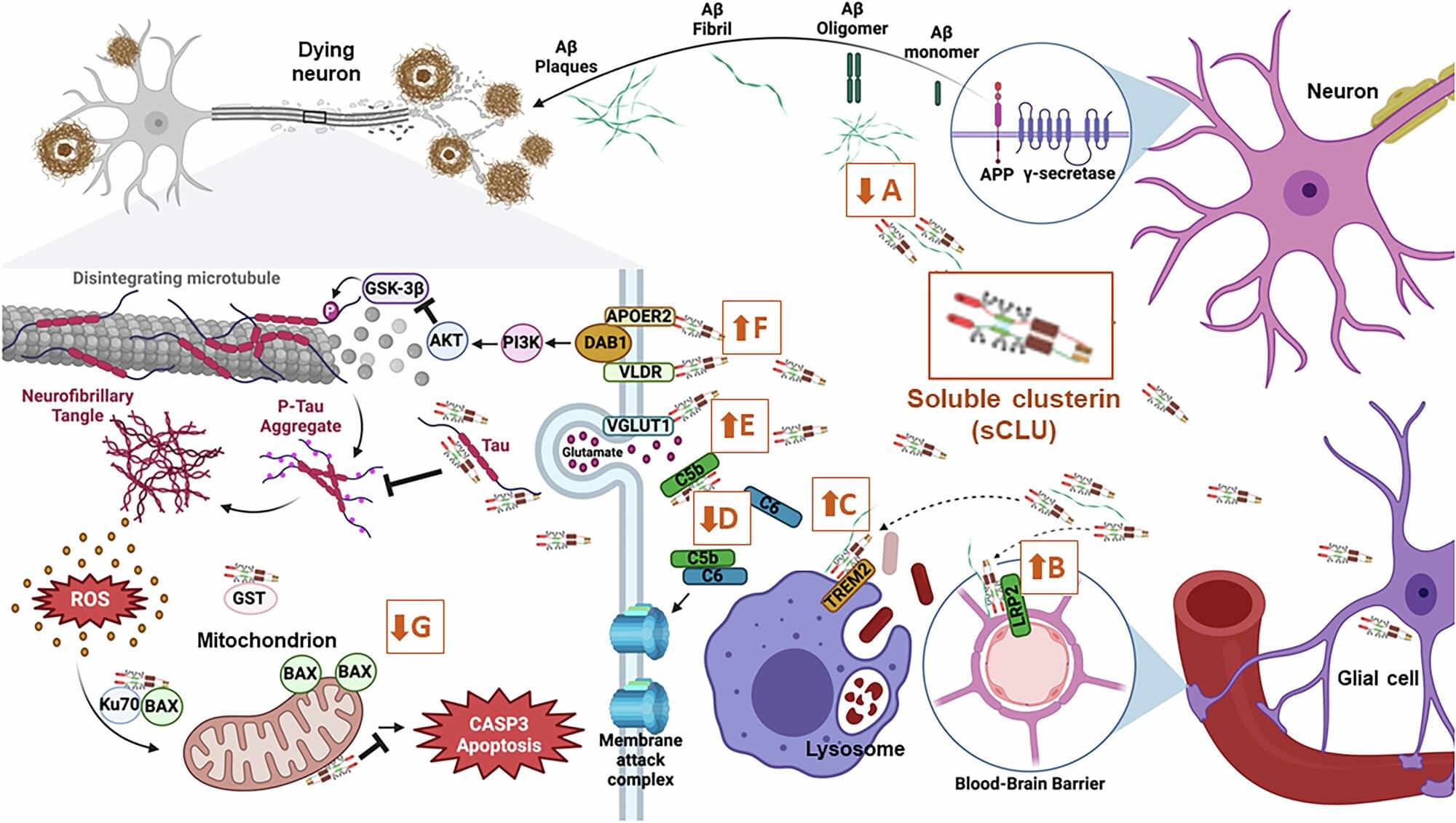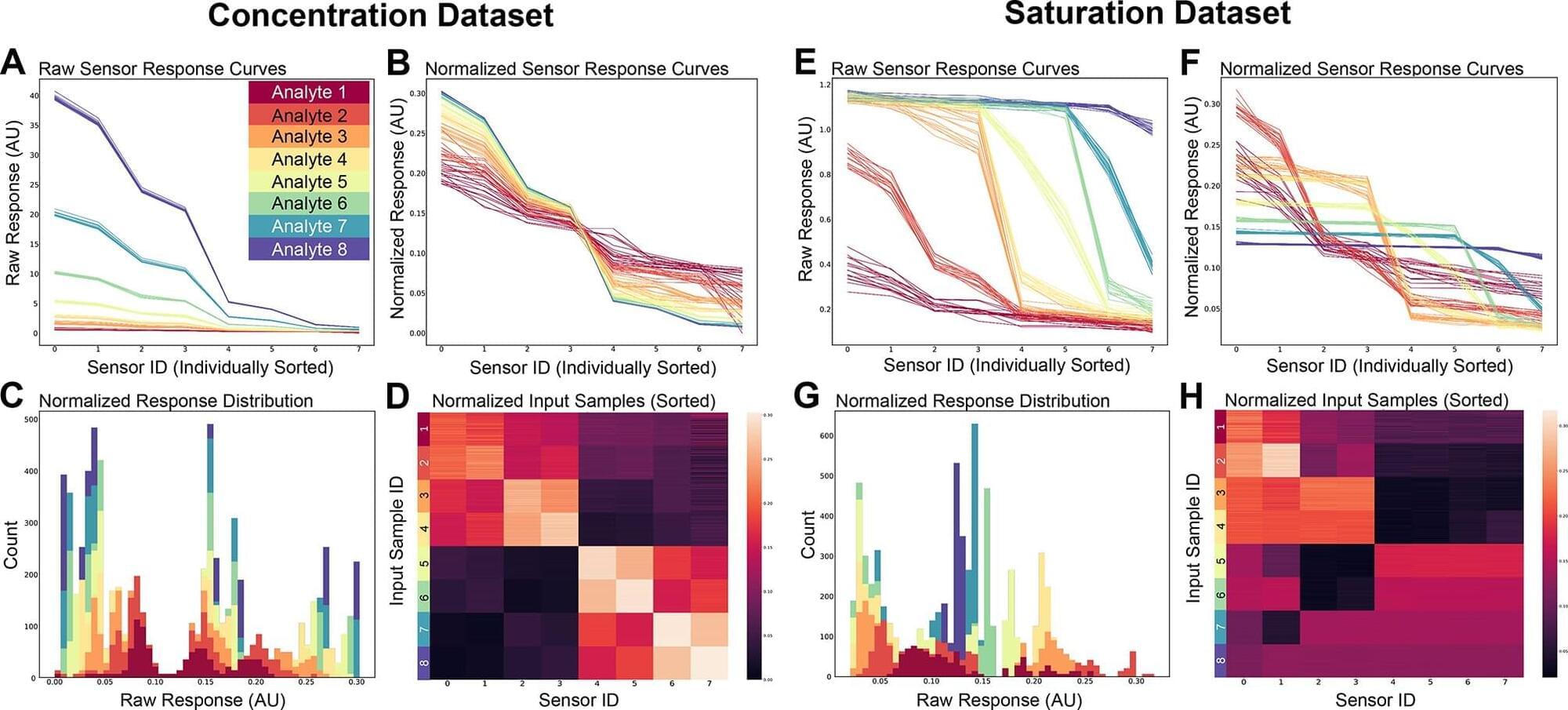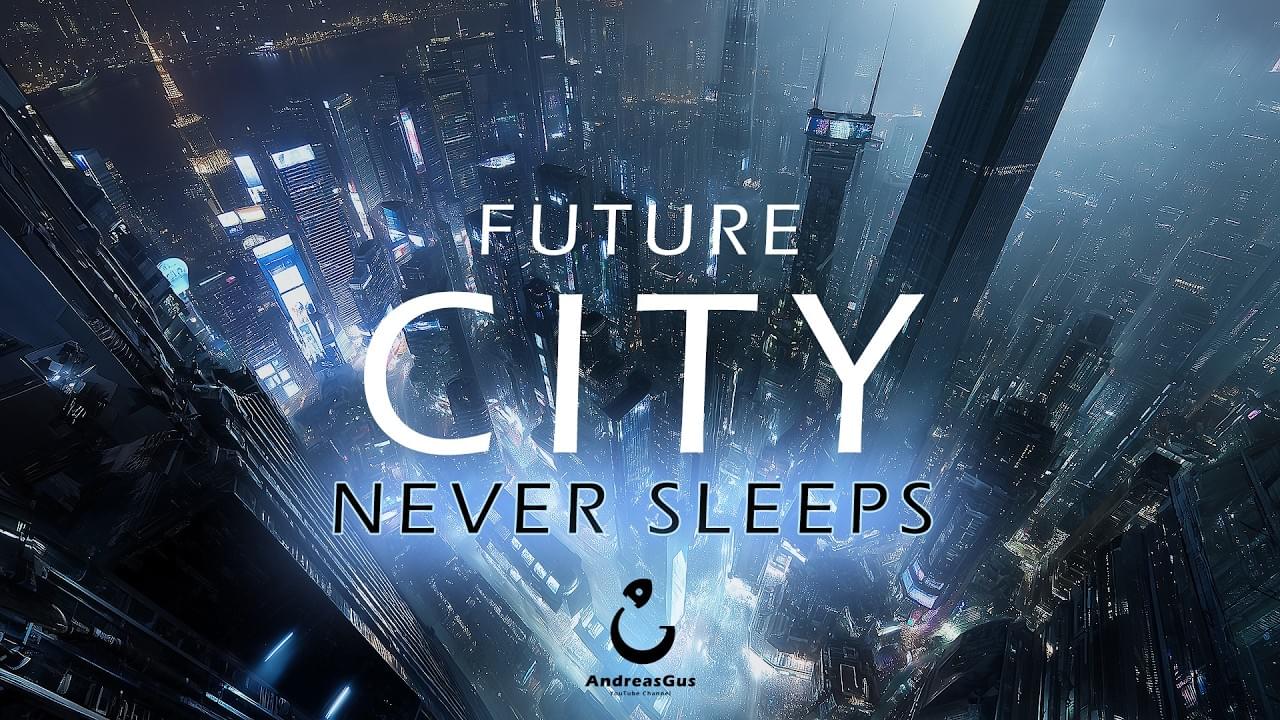Founded by former Uber managers, the startup builds a general-purpose AI teammate for the workplace.
As researchers work to improve treatment of Alzheimer’s disease, new research by UCLA Health identified a candidate drug that reduces levels of a toxic form of a protein in the brain caused by the disease and improved memory in mice by boosting production of a protective protein.
In a study published in npj Drug Discovery, UCLA Health researchers targeted the protein clusterin (CLU), which is crucial in preventing the build-up of amyloid-beta plaques and tau proteins that disrupt communication between brain cells and lead to memory impairment—a hallmark symptom of Alzheimer’s disease.
More than a decade ago, a variant of the gene that encodes clusterin was identified as the third strongest genetic risk factor for late-onset Alzheimer’s disease. It was recently reported that increased CLU protein could provide protection against Alzheimer’s disease and cognitive decline.
The chat bot earned a B, slightly below the class average. It excelled in practice problems and computing exercises but was unable to justify its work or simplify systems.
Human brains are great at sorting through a barrage of sensory information—like discerning the smell of tomato sauce upon stepping into a busy restaurant—but artificial intelligence systems are challenged by large bursts of unregulated input.
Using the brain as a model, Cornell researchers from the Department of Psychology’s Computational Physiology Lab and the Cornell University AI for Science Institute have developed a strategy for AI systems to process olfactory and other sensory data.
Human (and other mammalian) brains efficiently organize unruly input from the outside world into reliable representations that we can understand, remember and use to make long-lasting connections. With these brain mechanisms as a guide, the researchers are designing low-energy, efficient robotic systems inspired by biology and useful for a wide range of potential applications.
Join us for full LIVE Countdown To Launch Coverage of SpaceX’s 9th Starship Flight Test For a full detailed mission briefing visit: https://tlpnetwork.com/la…
@AndreasGus Science Fiction AI video about Future City that Never Sleeps with relaxing ambient chillout music made with Midjourney, MiniMax Hailuo AI and Sun…
Experience Sunbird and step into the future of propulsion. Dive into our interactive 3D experience and see Sunbird in action as it unlocks new frontiers.
Meet Sunbird, a marvel of space propulsion innovation, powered by our state-of-the-art Dual Direct Fusion Drive (DDFD). With a remarkable specific impulse of 10,000–15,000 seconds and 2 MW of power, Sunbird is redefining what’s possible in space travel.
The compact DDFD isn’t just an engine, it’s a leap forward, providing both thrust and electrical power for next-generation spacecraft. This breakthrough opens unprecedented possibilities to explore the solar system faster and with greater payloads than ever before.
Ready to see the future launch?
A special thank you to Dark Star Labs for bringing our vision to life with this incredible video.
Scientists have designed an amplifier that can transmit 10 times more information per second than current fiber-optic systems can, which could be helpful for medical treatment and diagnosis.
“To boldly go… where anime has never gone before.” 🌌🚀
Star Trek: The Anime Voyage (2025) is a fan-made concept teaser trailer, reimagining the legendary science fiction saga as an epic anime series.
With breathtaking cosmic visuals, stylized characters, and emotionally charged storytelling, this animated vision explores new worlds, strange civilizations, and the inner conflicts of Starfleet’s finest.
🚀 Featuring anime-inspired versions of:
Captain Kirk, reimagined with bold, stylized energy.
Spock, the logical soul with a conflicted heart.
Forget the gym—living longer could hinge on simple daily habits. Dr. Gareth Nye emphasizes whole-day activity, clean eating, quality sleep, and genetic awareness as the real drivers of longevity. Standing desks, frozen veggies, and knowing your family health risks might be more effective than intense workouts in boosting life expectancy and preventing chronic illness.









